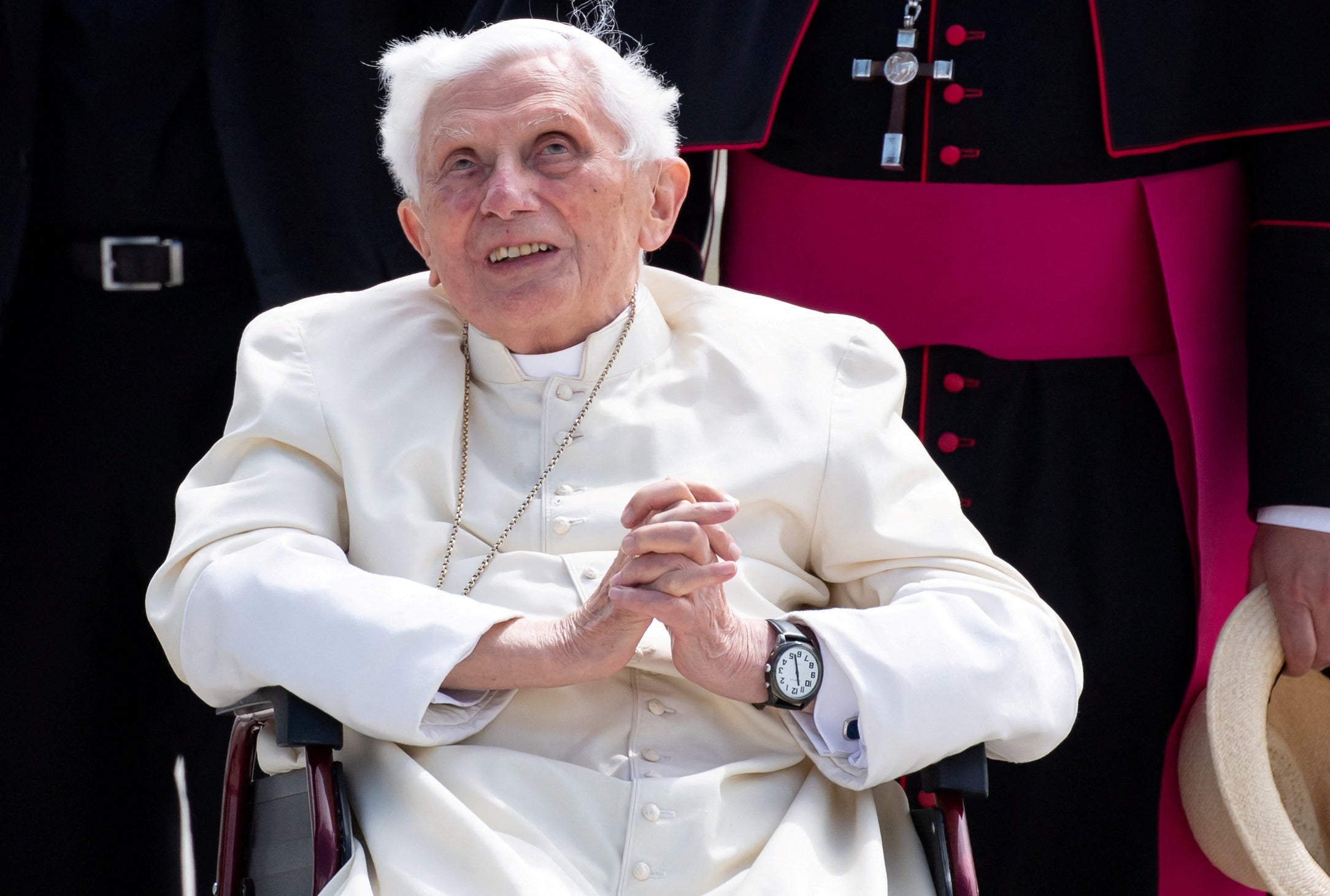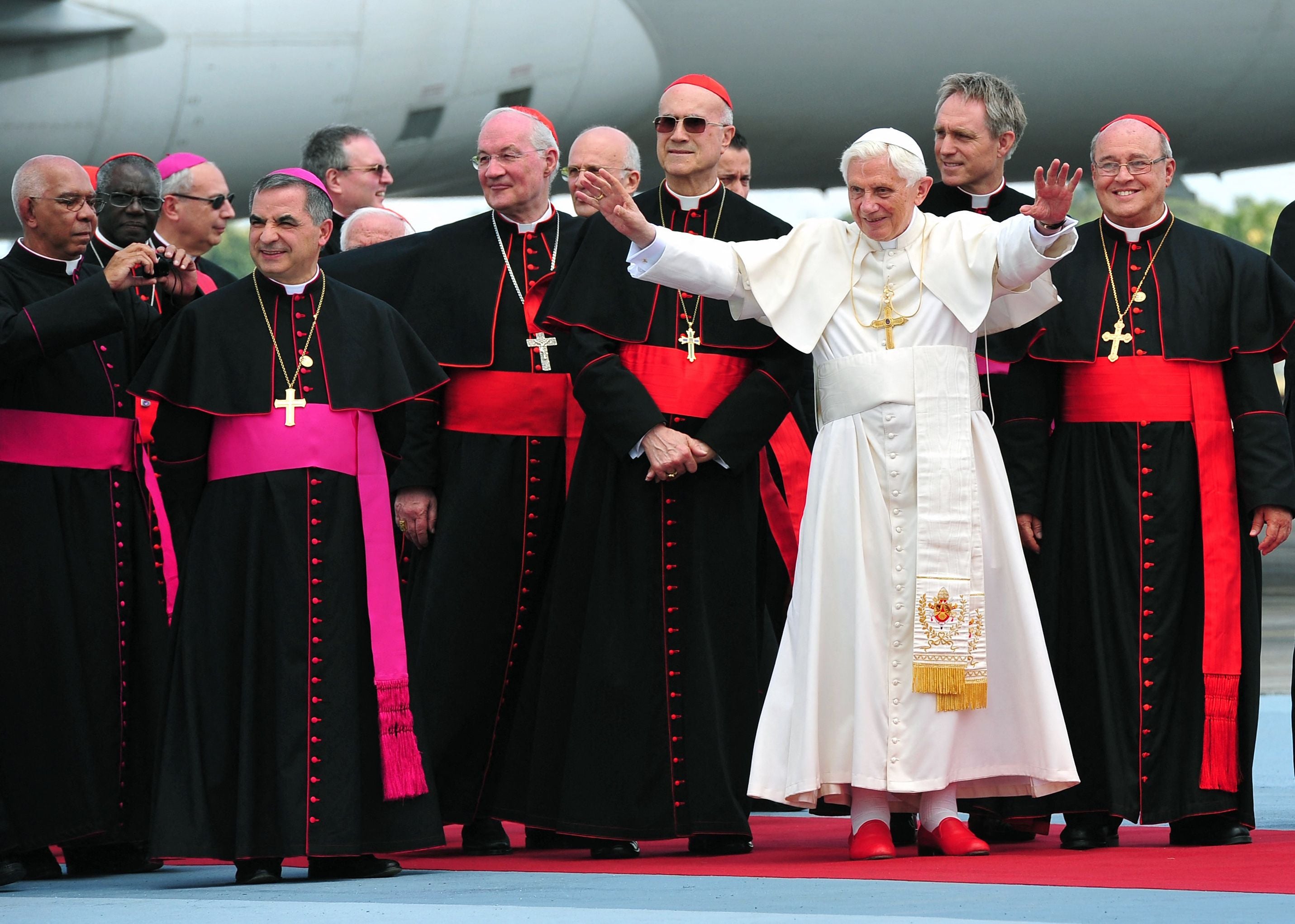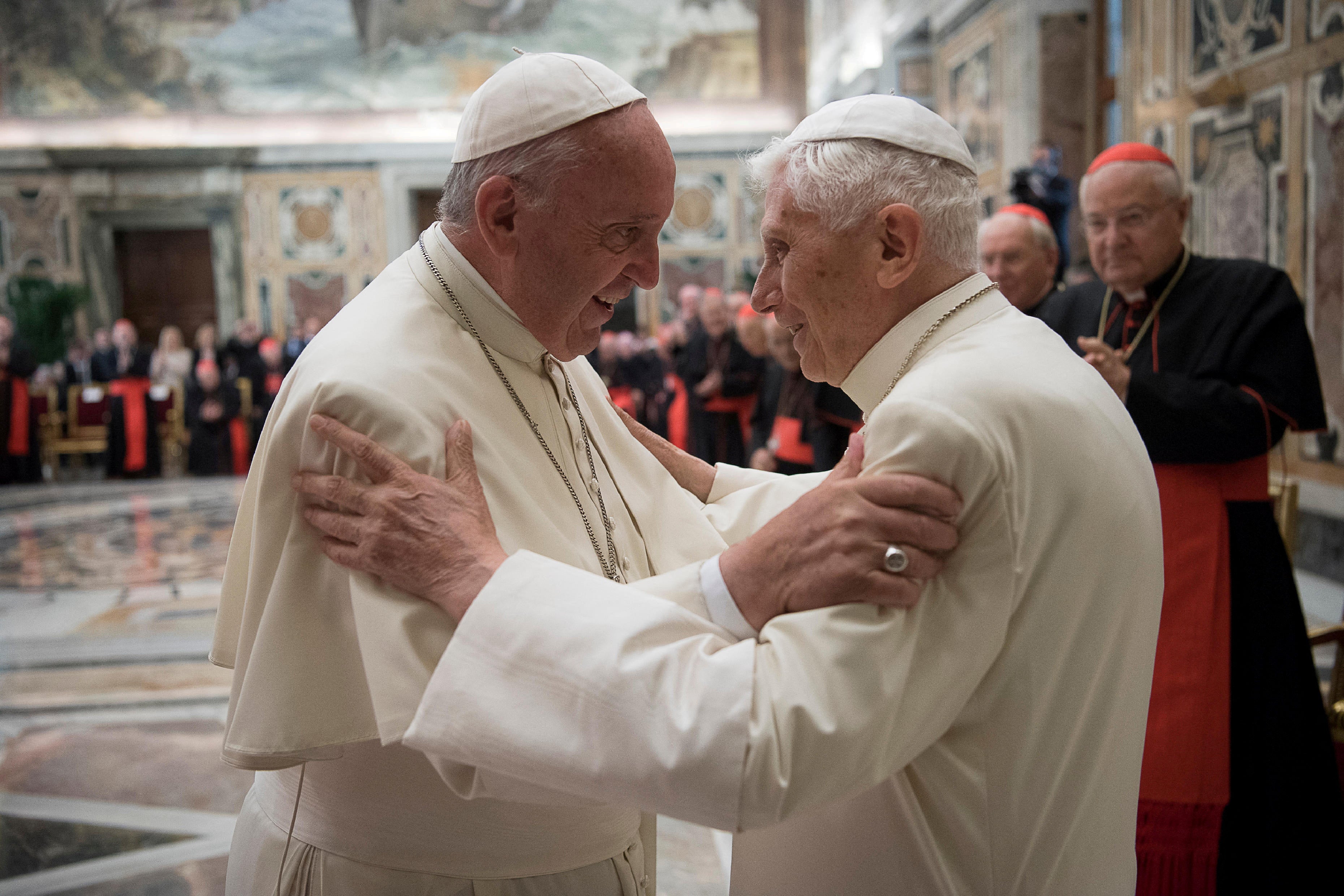
Tributes have poured in from around the world for former Pope Benedict XVI, who has died at the age of 95 – ending an extraordinary period during which two popes lived in the Vatican. The Pope Emeritus led the Catholic Church from 2005 until his resignation in 2013, becoming the first pontiff to do so since Gregory XII in 1415.
A statement from Vatican spokesperson Matteo Bruni said: “With pain I inform that Pope Emeritus Benedict XVI died today at 9.34 in the Mater Ecclesia Monastery in the Vatican.” Benedict’s successor, Pope Francis, will lead the funeral on 5 January, while the body of the Pope Emeritus will be placed in St Peter’s Basilica from Monday for “the greeting of the faithful”.

Benedict’s health had been deteriorating over recent days but the Vatican said on Friday that he was well enough to participate in a Mass in his room.
Francis on Saturday described Benedict as a noble, kind man.
Speaking at the homily of a previously planned New Year’s Eve vespers of thanksgiving in St Peter’s Basilica, Francis said: “It is with emotion that we remember his person, so noble, so kind. And we feel in our heart such gratitude, gratitude to God for having gifted him to the Church and the world.”
On Wednesday, Francis revealed that his predecessor was “very ill” and went to see him in his home in the Vatican Gardens. Mr Bruni said Benedict had received last rites, once known as Extreme Unction and now called “the anointing of the sick”, on the same day. Benedict was being tended to by a team of doctors and his papal family, including his secretary Monsignor Georg Ganswein.
British prime minister Rishi Sunak and Labour leader Sir Keir Starmer paid warm tributes to Benedict, with Mr Sunak calling the former pope “a great theologian whose UK visit in 2010 was a historic moment for both Catholics and non-Catholics throughout our country”.
King Charles III said he received the news of Pope Benedict's death “with deep sadness” and recalled “with fondness” meeting him during a visit to the Vatican in 2009. “I also recall his constant efforts to promote peace and goodwill to all people, and to strengthen the relationship between the global Anglican Communion and the Roman Catholic Church.”
The Archbishop of Canterbury, Justin Welby, said Pope Benedict was “one of the greatest theologians of his age – committed to the faith of the Church and stalwart in its defence”.
German Chancellor Olaf Scholz said that the world had lost “a formative figure of the Catholic Church”, while Italian prime minister Giorgia Meloni hailed Benedict as “a great man who history will not forget”, while Polish president Andrzej Duda called him “one of the greatest theologians of the 20th and 21st centuries”.
France’s president Emmanuel Macron said Benedict had “worked with all his soul and intelligence for a more fraternal world”. Irish President Michael D Higgins said the former pope will be remembered for “his untiring efforts to find a common path in promoting peace and goodwill throughout the world”. Russian president Vladimir Putin praised Pope Benedict as a “defender of traditional Christian values” in his new year address.

The Vatican has elaborate rituals for what happens after a reigning pope dies but there are no publicly known ones for a former pope – one of the many complications created by Benedict’s resignation. “Following the desire of the Pope Emeritus, the funeral will take place in a sign of simplicity,” Mr Bruni said, adding that the service would be “solemn and sober”.
A conservative defender of Catholic tradition, at the time of his resignation Benedict said he did not have the strength to carry on as pontiff. “I have had to recognise my incapacity to adequately fulfil the ministry entrusted to me,” he said. The former pontiff then installed himself in a converted convent on the Vatican grounds and chose the title Pope Emeritus. Benedict also continued to wear the white dress of papacy.
Although he said he would remain “hidden from the world” in his retirement, Benedict sometimes caused controversy and spread confusion through his writings and interviews. Although he rarely appeared in public, Catholic conservatives looked to the former pope as their standard bearer and some ultra-traditionalists even refused to acknowledge Francis as a legitimate pontiff. They have criticised Francis for his more welcoming approach to members of the LGBT+ community and to Catholics who divorced and remarried outside the Church, saying both were undermining traditional values.
Despite the difficulties that emerged from having two men wearing white in the Vatican, Francis developed a warm relationship with Benedict, and said it was like having a grandfather living in the house.
Pope Benedict, whose birth name is Joseph Aloisius Ratzinger, was born to devout Catholic parents in Germany in 1927. His father was a police officer in Hitler’s Germany, whose outspoken criticism of the Nazis forced the family to move several times. Young Ratzinger was conscripted into the army as a teenager but deserted towards the end of the war.
He already had a desire to enter the priesthood at an early age and continued his education in a seminary after the war. He was ordained as a priest in June 1951 and began a long career in academia, teaching theology at a number of universities in Germany. The former Cardinal Joseph Ratzinger never wanted to be pope and had planned at the age of 78 to spend his final years writing in the “peace and quiet” of his native Bavaria.
However, he inherited the seemingly impossible task of following in the footsteps of John Paul when he was elected the 265th leader of the Church on 19 April 2005. Benedict became the oldest pope elected in 275 years and the first German in nearly 1,000 years.

Benedict, who was seen as a deeply conservative pontiff, had an eight-year papacy that was marked by missteps and a leaks scandal. One of the most significant events of his papacy, the 2012 Vatileaks scandal, saw Benedict’s private secretary Paolo Gabriele leak secret documents that revealed corruption and feuding within the Vatican.
Child abuse scandals also hounded his papacy and critics said he failed to grasp the gravity of the crimes and the scale of the crisis as it reached a peak, although Benedict was quicker to discipline offenders than his predecessor John Paul II. In 2022, a report into abuse within Germany found that Benedict had failed to take action in four cases when he was Archbishop of Munich between 1977 and 1982, and the former pope acknowledged that errors had been made.







